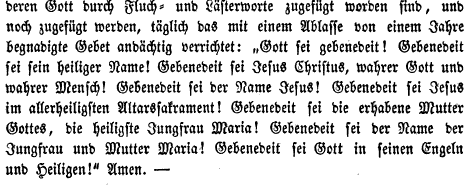»Gebenedeit« is the Partizip Perfekt of »benedeien«, and »benedeien« is a loanword from Latin. The latin origin is »benedicere«. It means »to bless« (»segnen« in German) or »to praise« (»preisen« or »lobpreisen« in German). Also the first name Benedict or Benedikt comes from this word.
So because of it's meaning you only can find this word in a religious context.
The German version of the prayer »Ave Maria« (»Gegrüßet seist du Maria«) was written by Martin Luther, 500 years ago, and this text has not been changed during this last 5 centuries. But German Langauge changed during this time, so this historic text sounds antique in modern ears.
So, when ever »gebenedeit« was used in every days live, then it was 500 years ago, and only in a religious context. Today you find this word only in this prayer, nowhere else. (I hope this answers your question.)
As mentioned above, there is another word with the same meaning. It is »segnen« (to bless). It comes from the noun »Segen« which also has an latin origin. The latin word »signum« (from which the english »sign« comes) was used to name the gesture of making the cross-sign (move the hand from top down, then from left to right). This sign was called »Segen«, and making this sign was »segnen« (to bless).
I guess (but I'm not sure), that 500 years ago both words (»benedeien« and »segnen«) was used at least among priests, and when Luther translated the latin prayer into German he has chosen the word that was closer to the latin original, and this definitely was »benedeien«.
The second sentence of this prayer is:
Btw (I was curious and googled for the origin of englisch »bless«): The englisch word »to bless« comes from Proto-Germanic »blodison« which means »mark with blood«, from the pagan tradition to sprinkle altars with blood.

